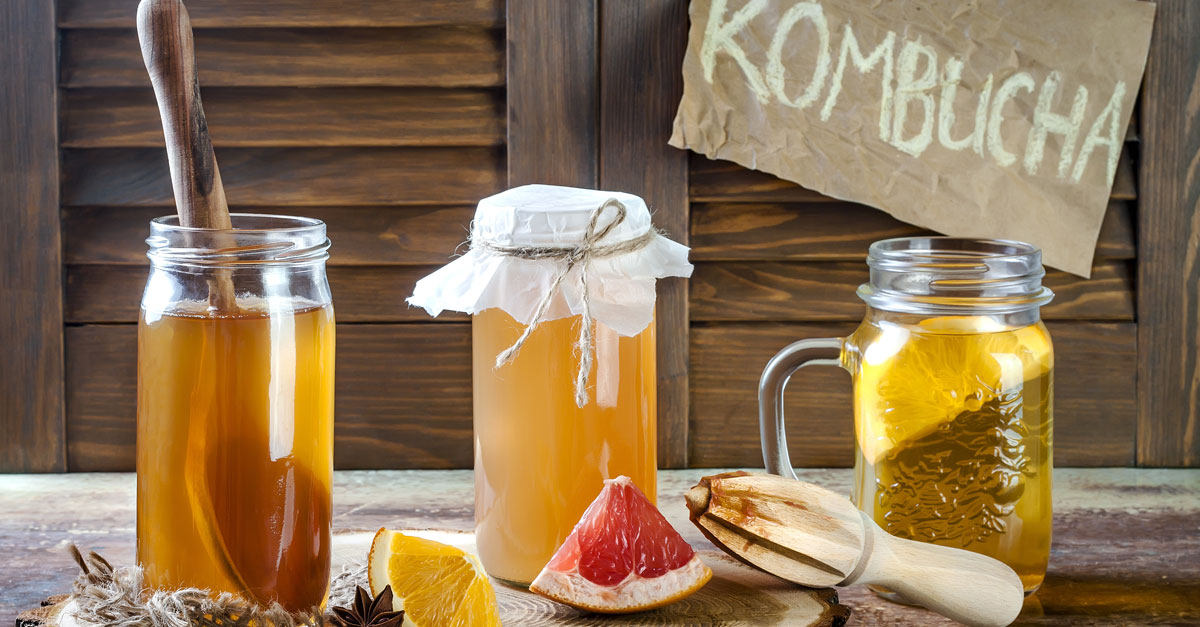Everybody’s into kombucha these days. The fermented tea drink, which is thought to have its origins on the Silk Road in China, is now touted as a gut health booster, thanks to its probiotic qualities. A study in 2012 even found that one bacteria strain commonly found in kombucha reduces genetic damage and inflammation in ways that could lower cancer risk. If you love the sparkly, slightly sour taste of kombucha, you may have wondered about its environmental credentials: is kombucha environmentally friendly? The good news is that largely, the answer is yes.
The process of creating kombucha itself is notoriously low-intensity and can be done at home. “Kombucha is made from either a green or black tea base. Added to that is white sugar, which has been fermented with a type of “tea fungus” called a symbiotic culture of acetic acid (vinegar) bacteria and yeast, or SCOBY, for one to two weeks,” Dr Evangeline Mantzioris and Dr. Permal Deo wrote for The Conversation in 2018. “The taste of the kombucha changes during fermentation from a pleasantly fruity sour-like sparkling flavour [sic], to a mild vinegary taste after a long incubation period.”
more on bustle.com




